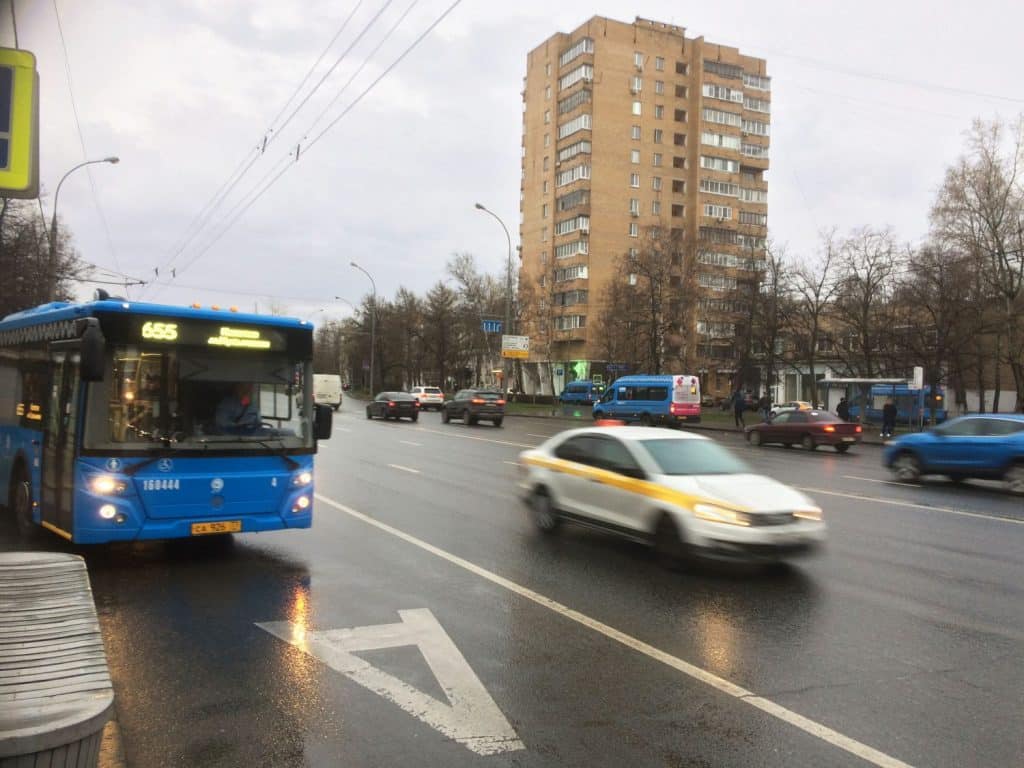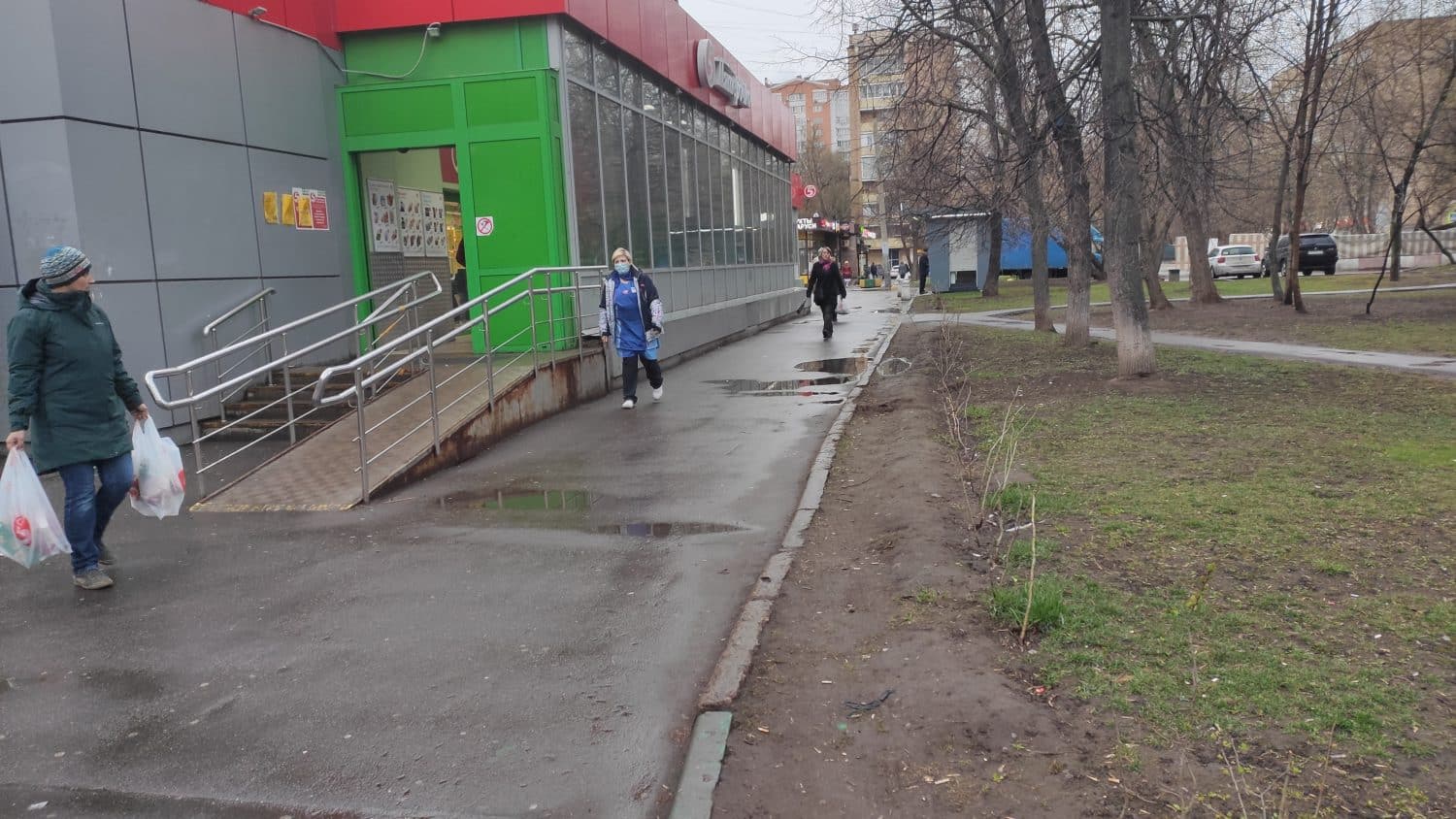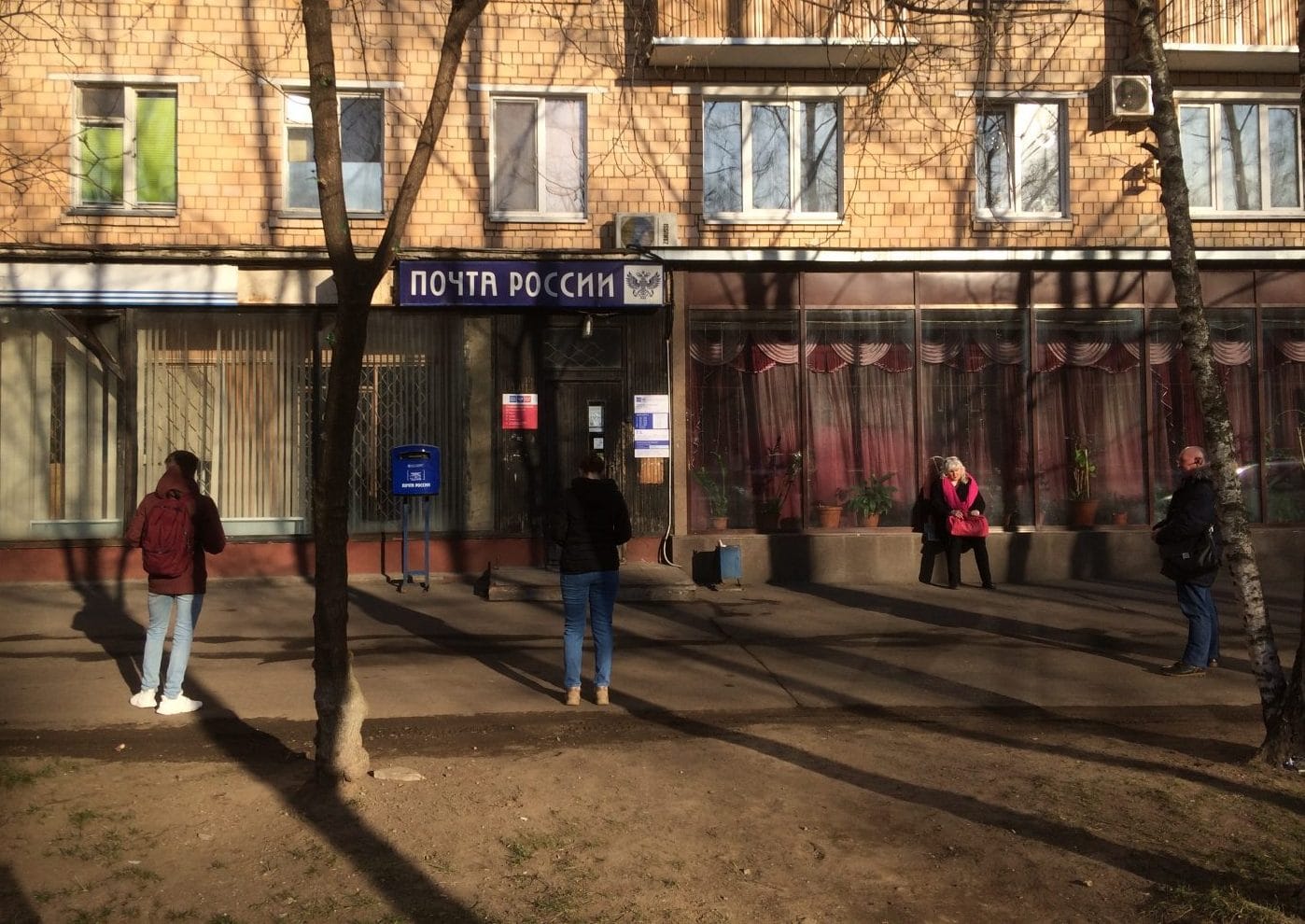Quarantine Diaries is a series of free language lessons. Each can take a variety of forms but all focus on building intermediate and advanced vocabulary and listening skills. The following bilingual text was created from a blog entry by SRAS Assistant Director Josh Wilson on SRAS.org. It has been reformatted here as a Russian MiniLesson. Read the text and familiarize yourself with the new vocabulary (you can hover over the bold Russian to reveal its English translation). Then, watch the related video below and see if you can answer the questions!
in Moscow is . We are now in .
have been gradually introduced during this time. The initial , , cafes, bars, and nightclubs, on March 17 and on March 21. Since then, a similar pattern of broadcast-then-implement has followed with , other “non-essential” businesses, and now by transport .
When announced on March 29, the initial sounded quite . However, so long as the majority of Muscovites . Enforcement to date .
I live near two of Moscow’s . I’d estimate the I’ve seen from my window in the first three weeks since the “lockdown.” Yandex Maps’ traffic measurements agree that this was true for most of the city.

A new was made on Friday, April 10th. Starting the 15th, must first, via a city website, . The related for not doing so is 4000 rubles (about $60). For a , it rises to 5000. As of midday on Monday the 13th, 800,000 people ). I’d estimate the traffic outside over the weekend. Again, Yandex Maps seems to agree.
remains . in my neighborhood number maybe 160% of normal. Yandex again seems to agree. Its индекс самоизоляции (“Self-Quarantine Index“) uses (anonymized data) from its various ubiquitous Yandex how many people are moving around on the street. Although Moscow’s tourist attractions , have experienced what literally feels like a week of Sundays.

These pedestrians are obviously not just or , . Many are just while and . The regularly passing by seem (altogether unconcerned) with them.
The same announcement for the vehicular QR codes also said that local foot traffic would not be yet subject to enforcement. Over the last two weeks, only 1500 fines have been issued of 1.5 meters. For a city of 12.5 million, 1500 is an incredibly low number. I’ve seen local police, small groups of men that . I assume this policy is in effect and mostly explains those relatively few fines given.
as they always have, . Although they for a time, shelves are mostly full again. Fresh fruits and vegetables, dairy, and eggs were never . Staples like buckwheat, pasta, and flour have returned to their normal shelf space. This has been assisted by a Soviet-era program that a certain amount of food at all times. Since then, food has continually rotated in and out of these facilities. This unexpected or .

Public transport, although largely empty, also continues to run . Groups of and , repainting playgrounds, repairing city pipes, and now apartment building staircases and elevators regularly. Many have also been allowed to keep working, although . This has all also helped maintain a sense of normalcy.
Russia’s response to looks very different from that taken by many other countries. In fact, all countries have taken an to the crisis and on their own time scale. Ukraine, for instance, (shut its borders) and most of its economy . Germany, meanwhile, opted to . Sweden has allowed cafes to remain open, although .
(policymakers) and (think tanks) around the world will hopefully be busy for the next many years analyzing these different policies, their social and economic contexts, and (their effects on local health and economies).
In the meantime, . , but are not yet nearly as strict as many other places globally. For now, life is focusing on what can be done and over the Internet. , that is actually
Below, you can see the official announcement from Moscow Mayor Sergei Sobyanin of the implementation of the new QR codes below. You can find a full transcript of the video here.
Listening Comprehension
1. Какой, по словам мэра, была самая первая мера, принятая для борьбы с коронавирусом?
Закрытие учебных заведений.
2. Какая часть жителей города не может свободно передвигаться по Москве?
75% (семьдесят пять процентов).
3. Сколько тестов на коронавирус ежедневно проводится в городе?
17 (семнадцать) тысяч.
4. Какие важные предприятия и организации продолжают работу в Москве?
Медицинские организации, органы власти, правоохранительные органы, финансовые структуры, предприятия связи и транспорта, средства массовой информации.
5. Для каких поездок будет нужен пропуск?
На первом этапе - для поездок на работу, на втором - для поездок в других целях.





